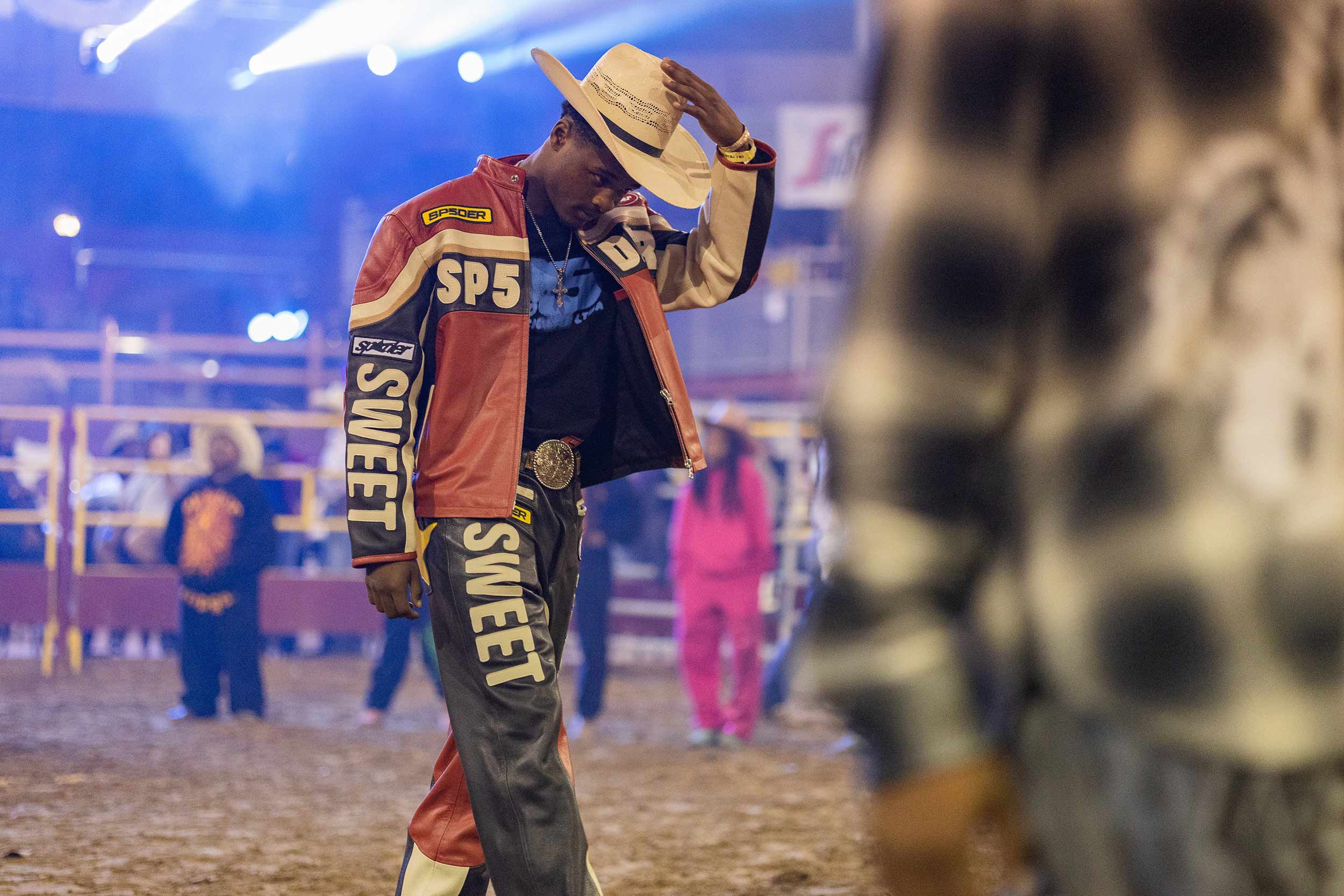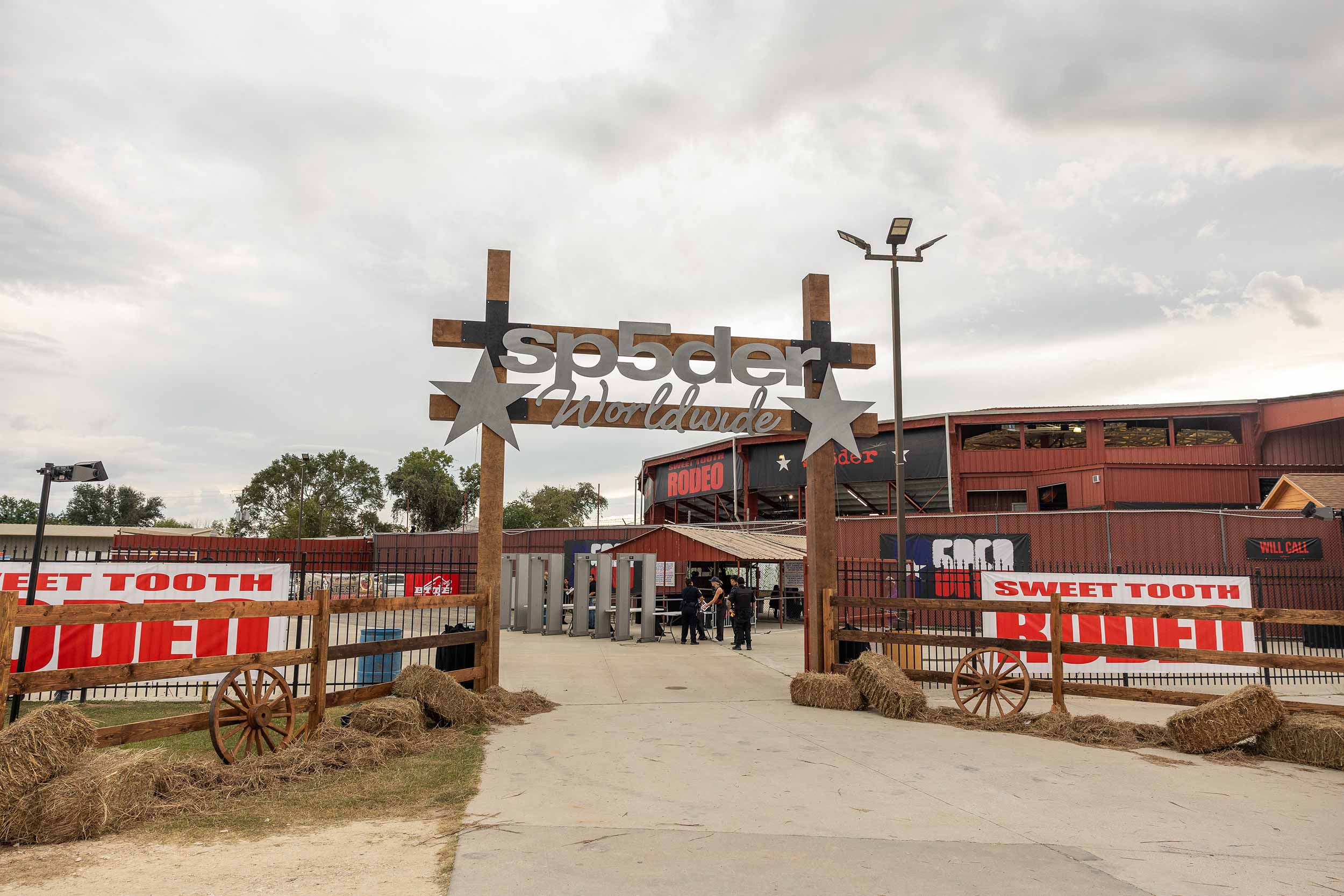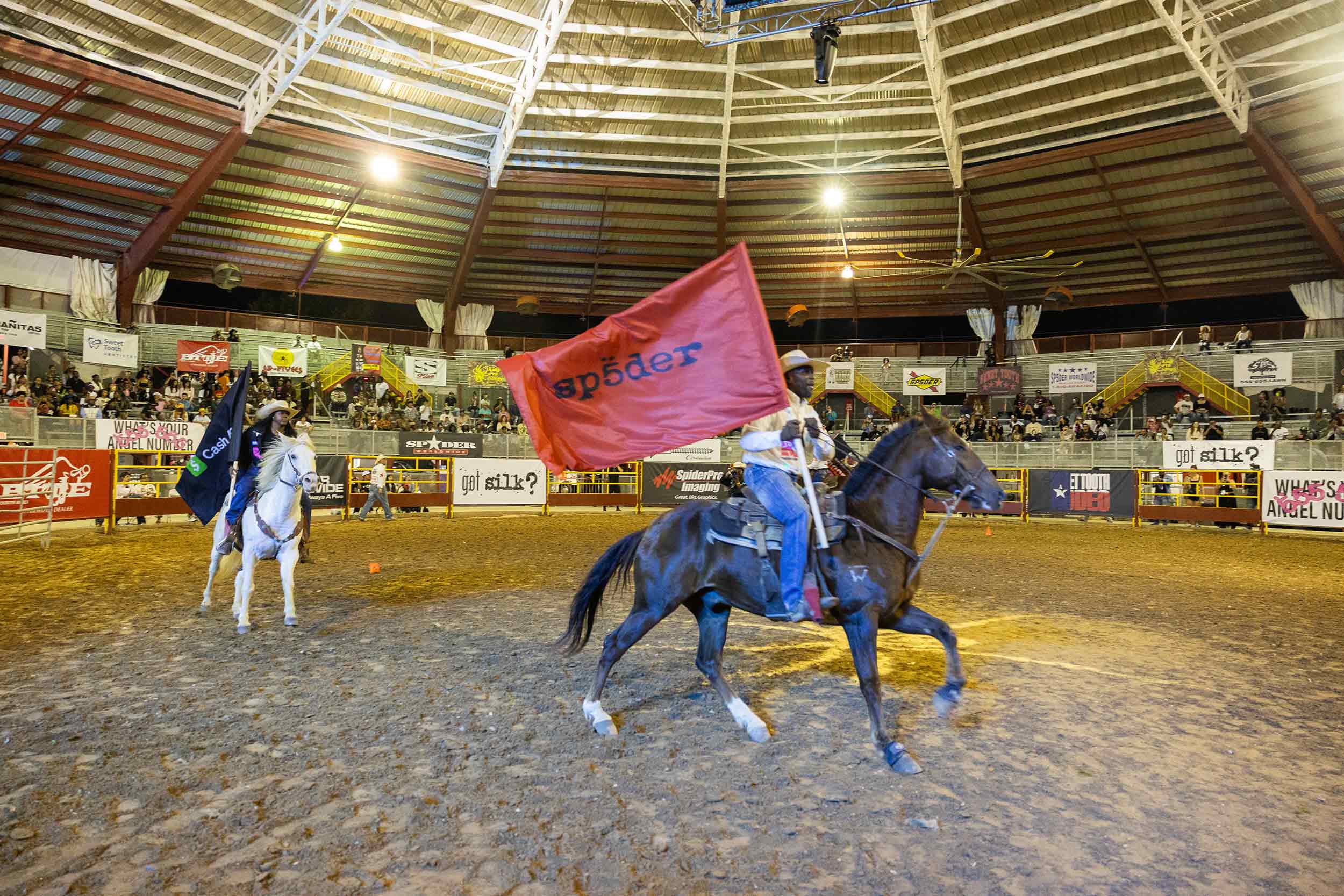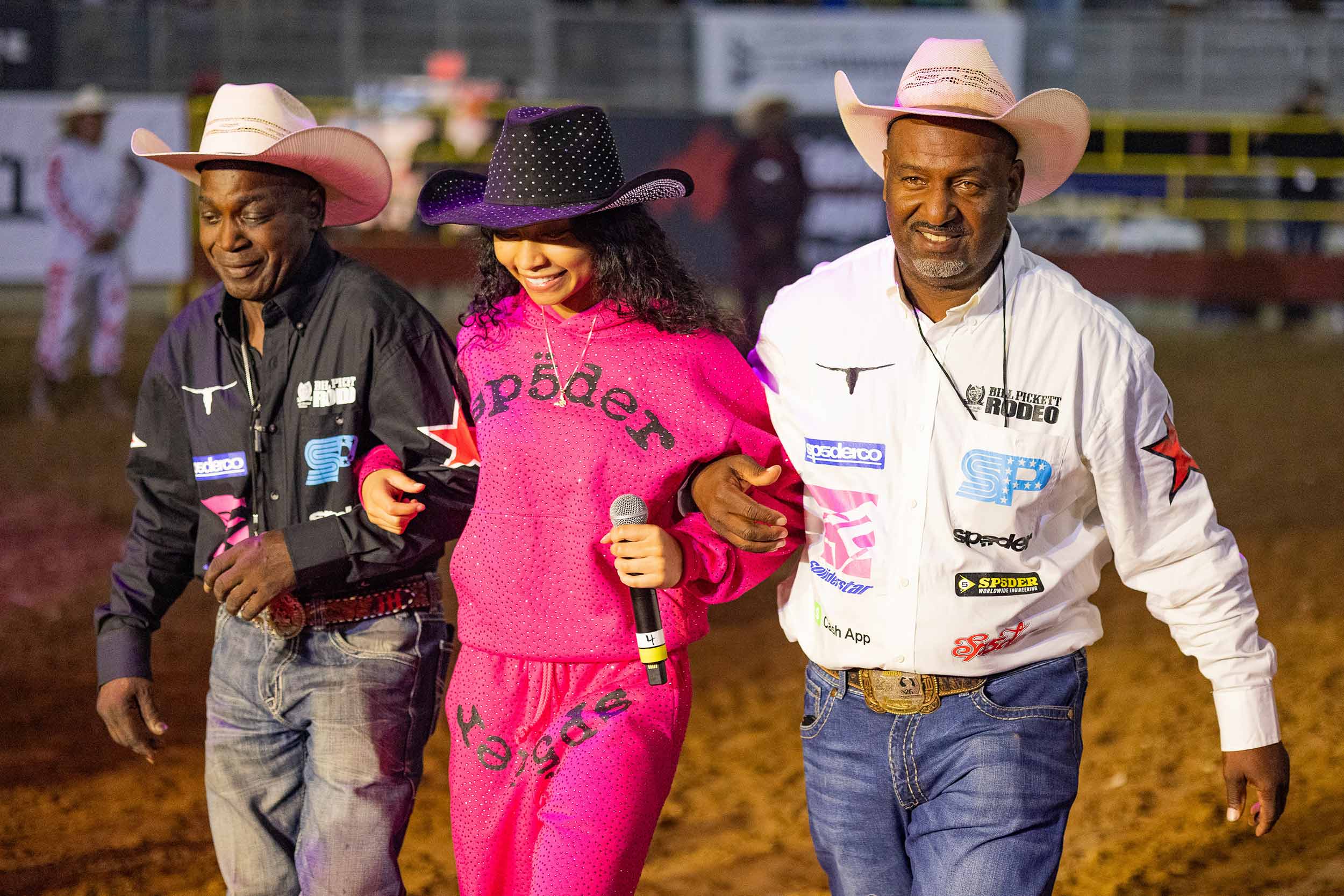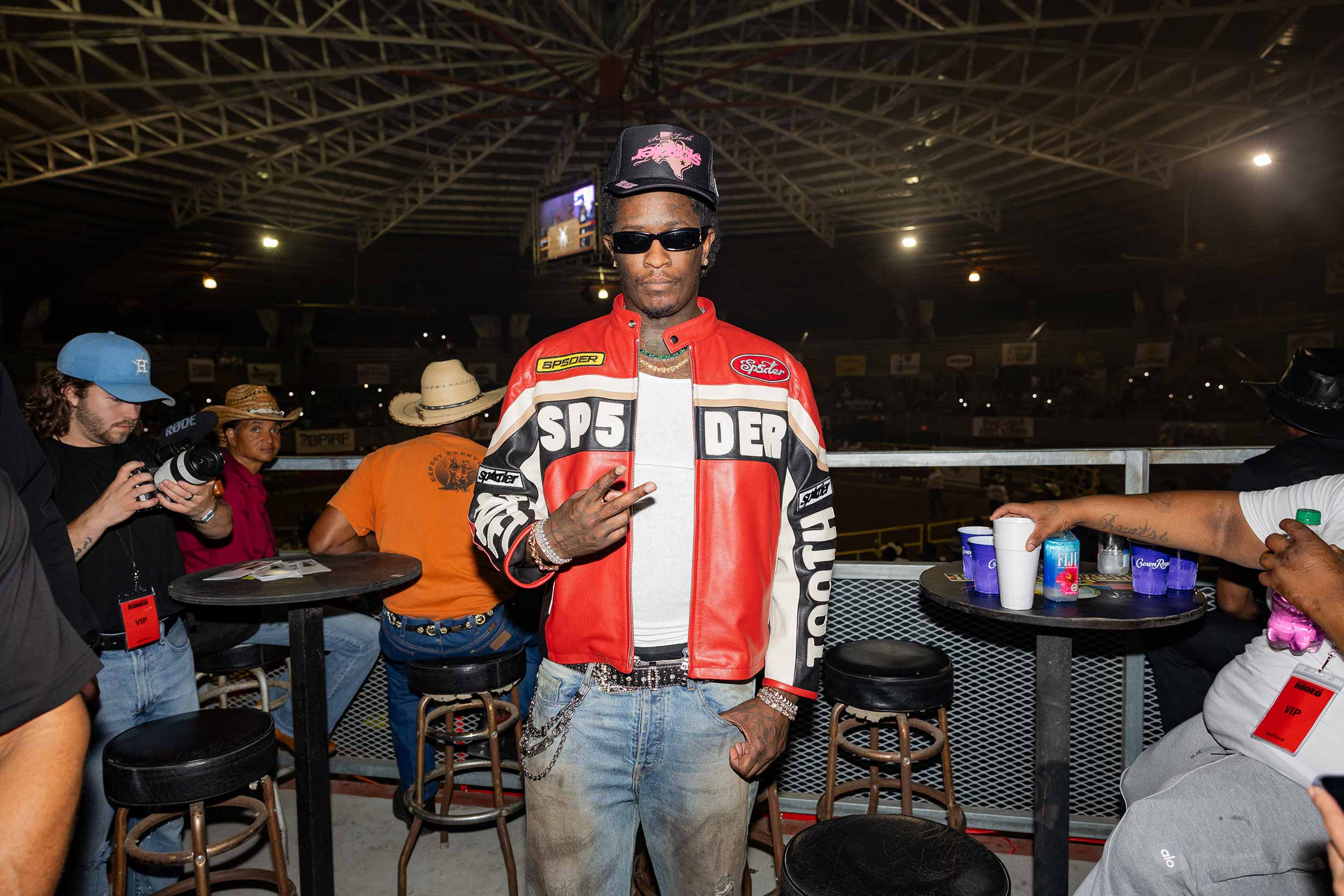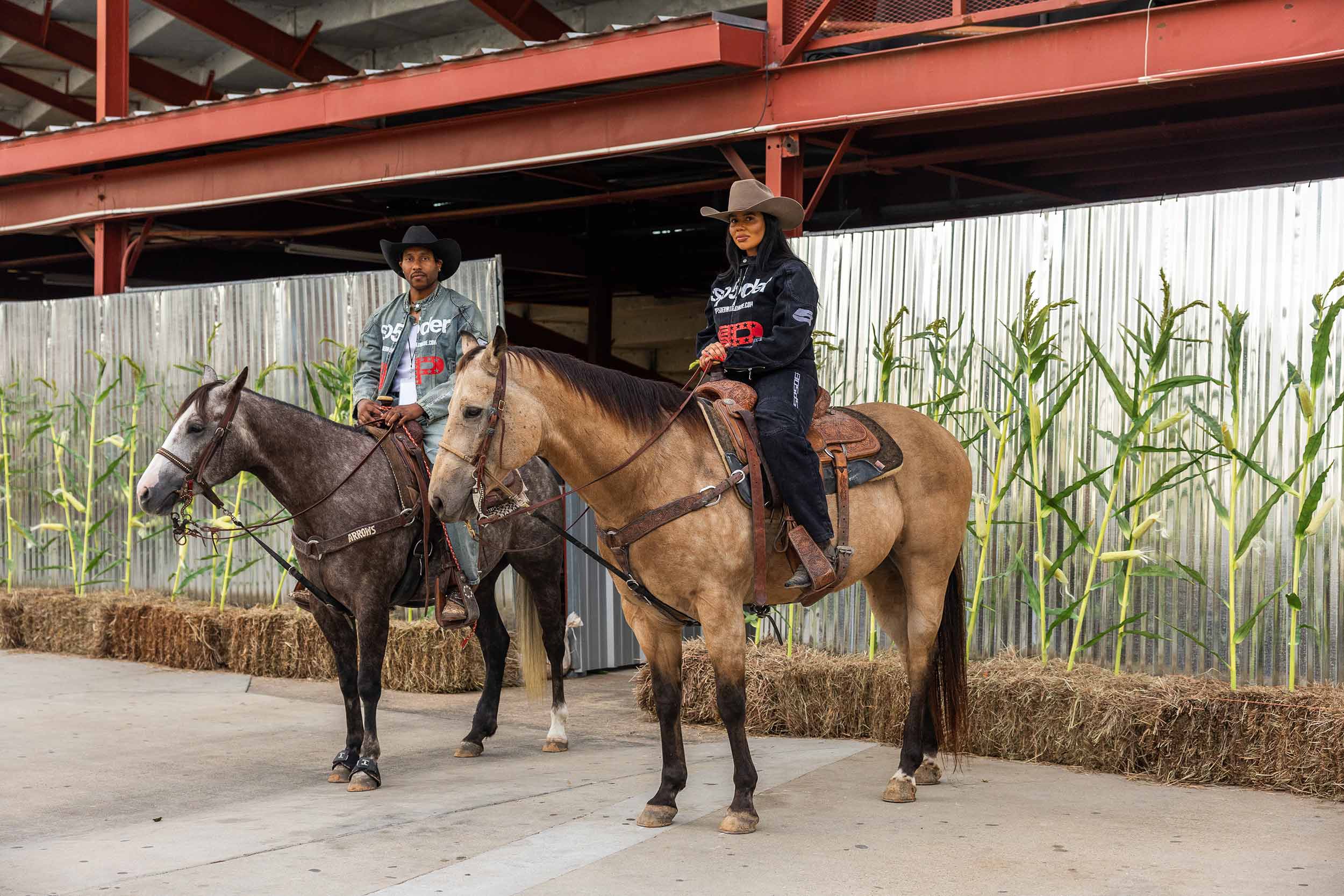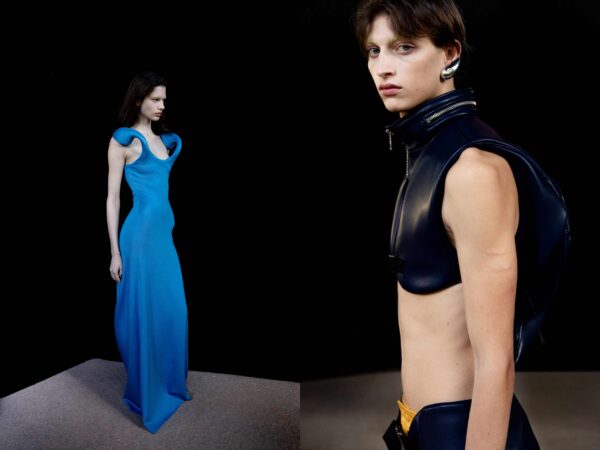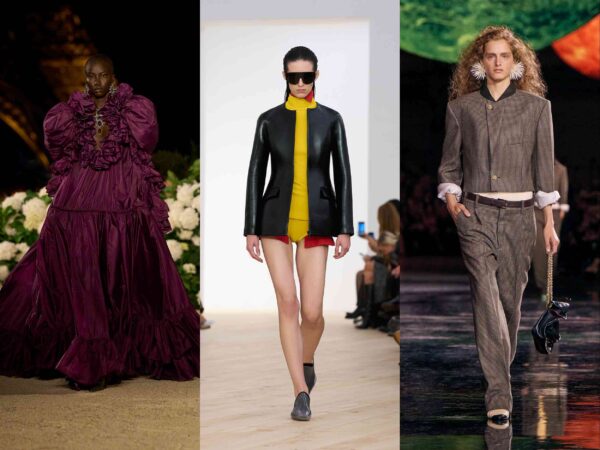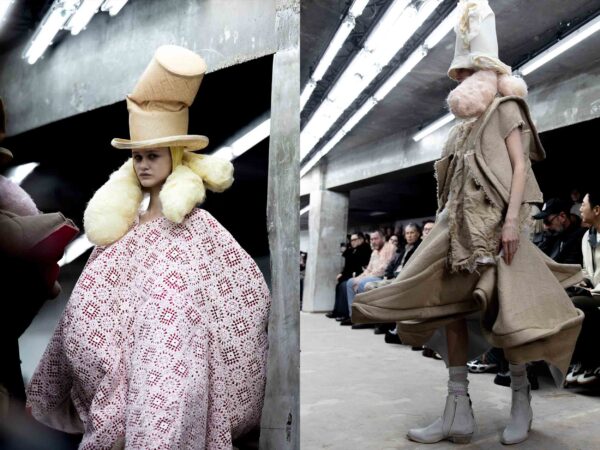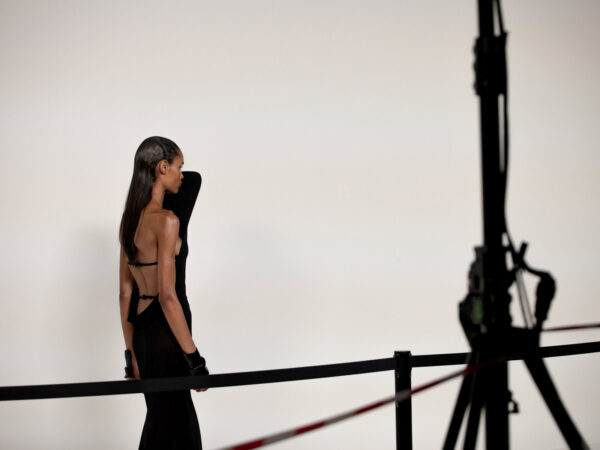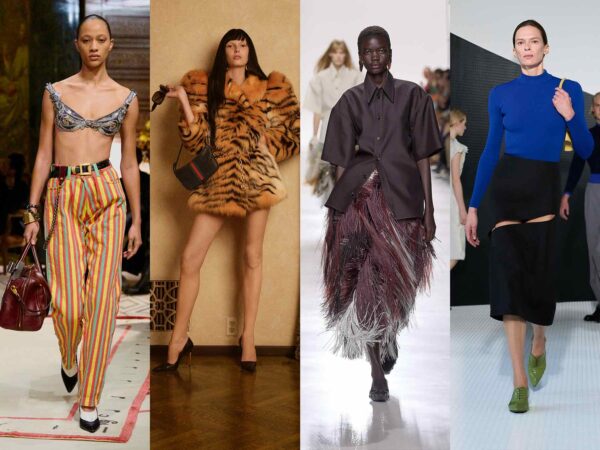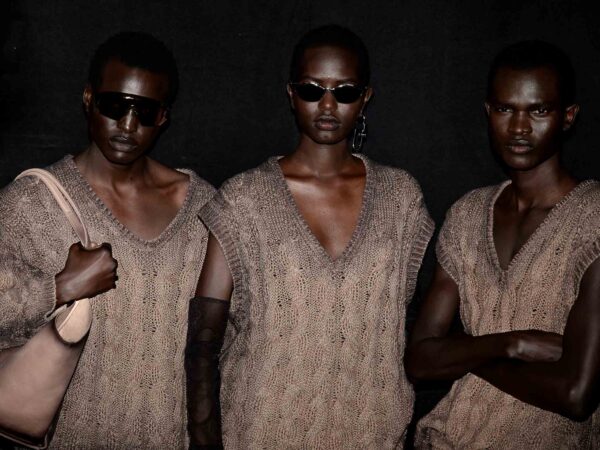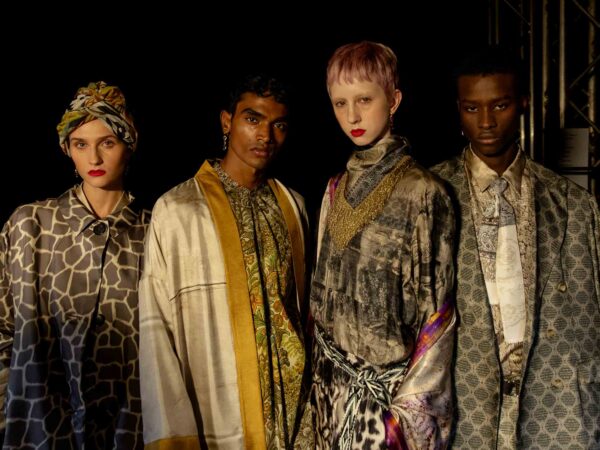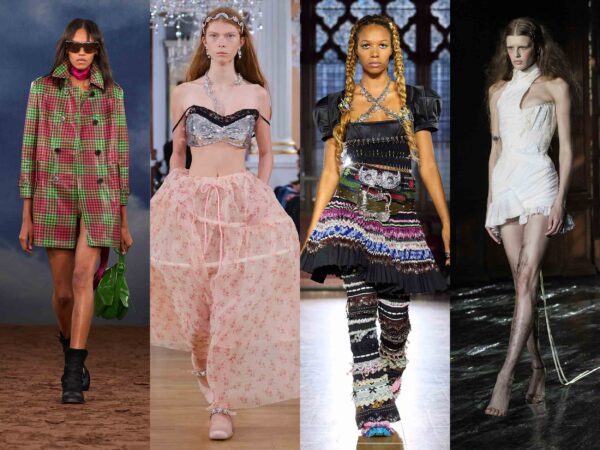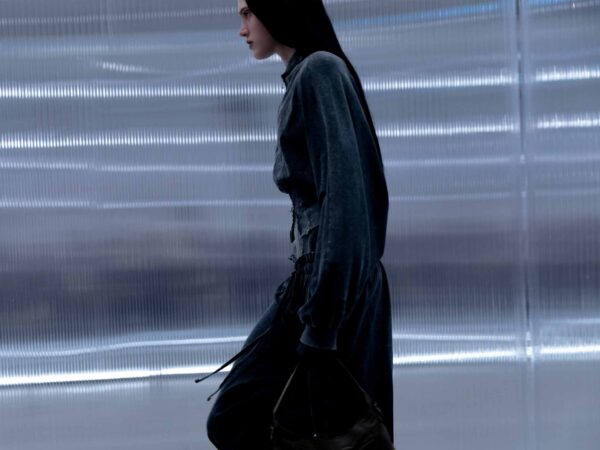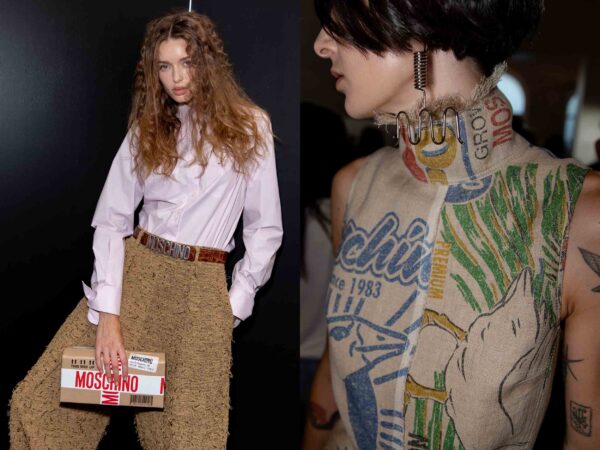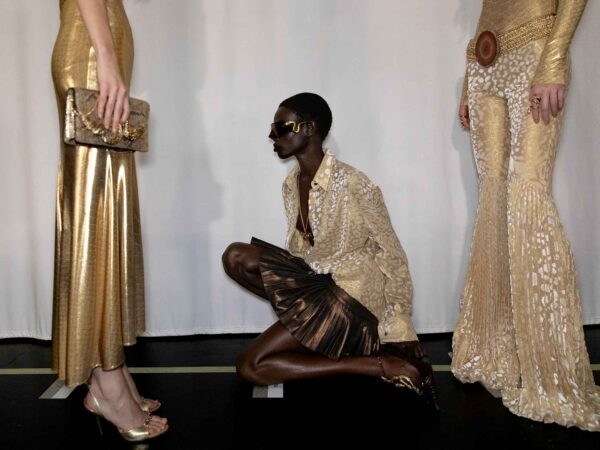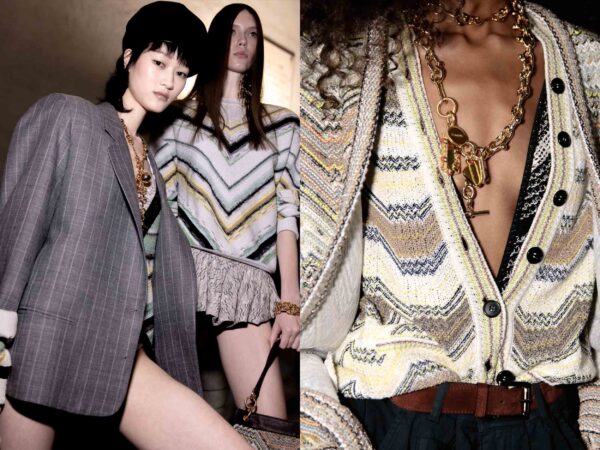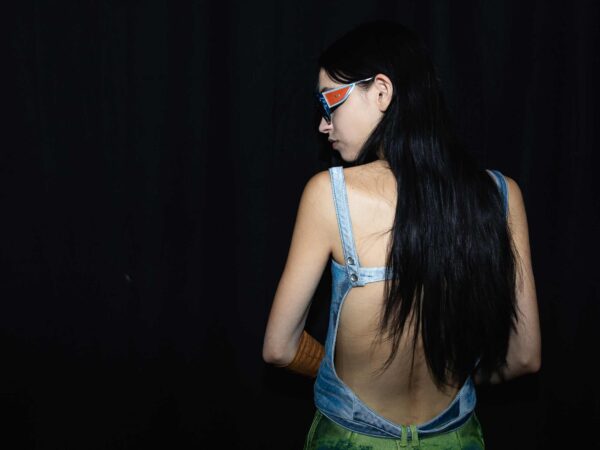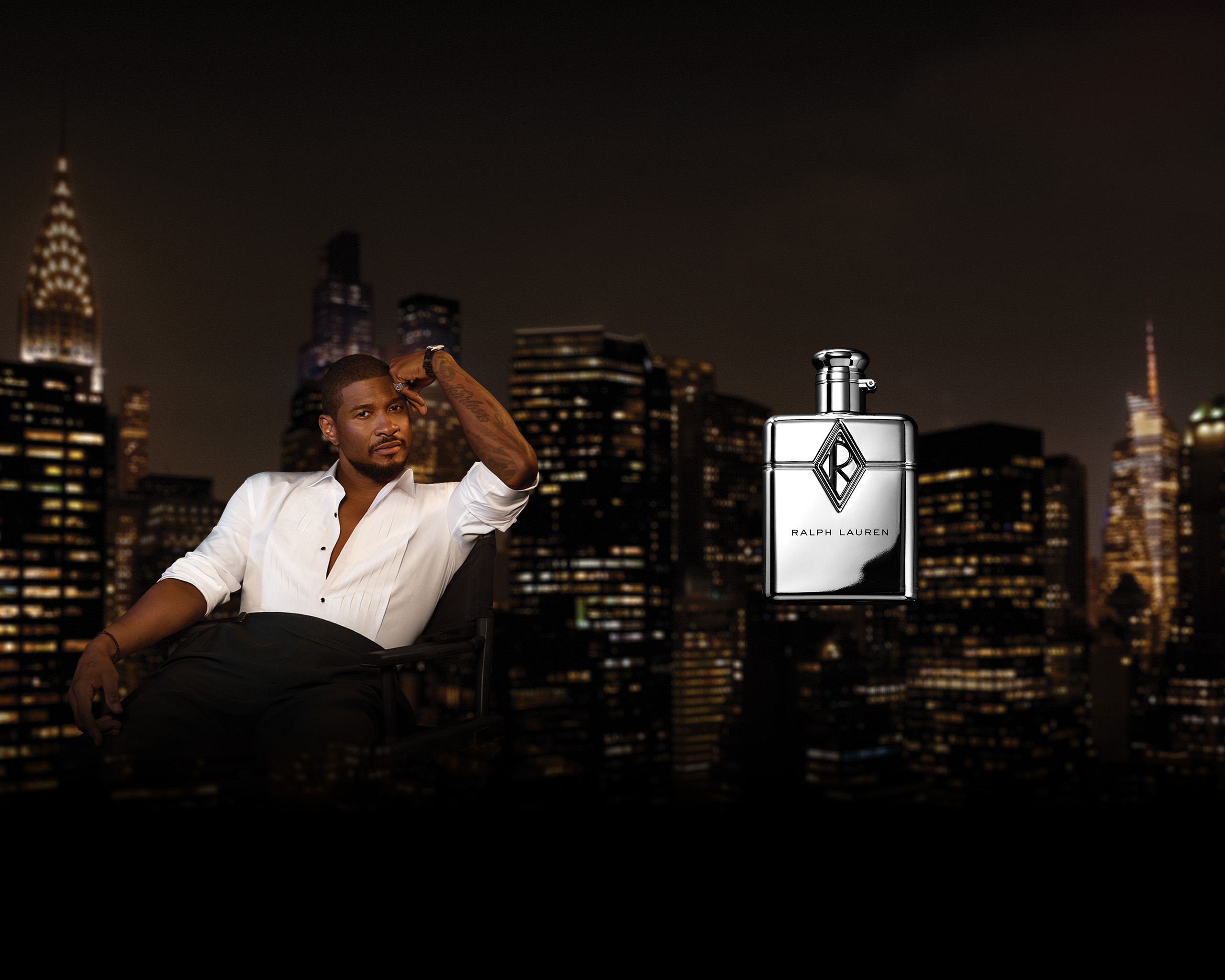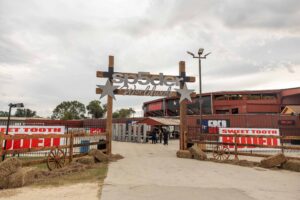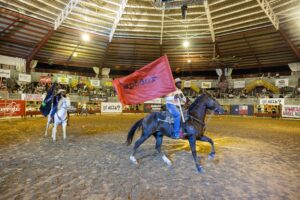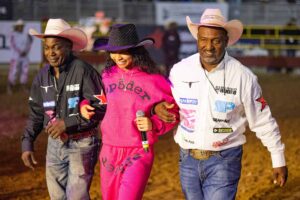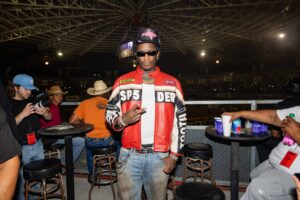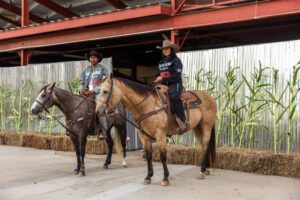For its latest drop, Young Thug’s streetwear label honors the legacy of the Black cowboy with a Texas rodeo
Few cities sprawl quite like Houston, a metropolis of mega-freeways and suburbs where the car is a way of life. Last week, as I zipped across its infinite highways in 30-minute Uber rides, there was no catching Houston’s vibe amid the ocean of asphalt. The city was all veins, no pulse. That all changed at Sweet Tooth Rodeo, the fashion rodeo hosted by LA-based brand SP5DER Worldwide, a concentrated dose of Southern spirit celebrating the city’s Black history and its enduring cowboy culture.
SP5DER Worldwide, Atlanta rapper Young Thug’s streetwear brand, presented the event in collaboration with The Bill Pickett Invitational Rodeo, America’s longest-running all-Black touring competition that has celebrated the legacy of Black cowboys for over 40 years. Before the show, cowfolk and their families toured the stadium clad entirely in designs from SP5DER’s FW25 collection. Then came the competitions, with over 50 cowboys and cowgirls, some as young as 15, barrel racing, bull riding, and calf wrangling to the uneasy squeals of us city folk rooting for the baby cows.
Bulls bucked with such force that a young cowboy took a horn to the chest, saved only by the kevlar vest under his custom-designed SP5DER competition shirt. One cowgirl bolted through the barrel agility exercise too fast for anyone’s camera to follow. The brand touched every corner of Plaza Garibaldi, the Houston stadium staging the event, from the signage to the black-and-red leather chaps gripping the saddles.
Long before Houston-grown superstar Beyoncé consecrated Cowboy Carter, black cowboys have been central to Texan history, working on ranches across the state since the early 19th century. Many were born enslaved and later found greater freedom and opportunity on the open range, where racism was less overt than in cities. After the Civil War, they worked as horse trainers and ranch hands, though few rose to positions of authority. Some became rodeo performers or federal lawmen in what was then “Indian Territory”; others built their own farms, or chased the myth of the frontier as gunfighters and outlaws. The fictional Lone Ranger himself was based on Bass Reeves, a formerly enslaved runaway turned legendary vigilante. Bill Pickett, the rodeo’s namesake, was inducted into the National Cowboy Hall of Fame in 1971 and credited with inventing “bulldogging”, a rodeo event where a mounted cowboy chases a steer, slides off his horse, and wrestles the steer to the ground at full tilt.
At Sweet Tooth, a young girl in a pink SP5DER tracksuit stood at the center of the arena, singing a gorgeous rendition of the national anthem as a cowgirl circled her on horseback, waving the Stars and Stripes. In the rafters, the crowd rose to their feet, cowboy hats held over their hearts. When the song ended, the singer was briefly escorted offstage—then surprisingly brought back to the arena’s center for an encore. This time, she sang “Lift Every Voice and Sing”, the hymn widely recognized as the Black national anthem, as the rider returned, now carrying the Pan-African flag. Over the speakers, the MC described the significance of its red, black, and green stripes; a symbol of the African diaspora.
Fashion loves to reinvent the cowboy archetype—from Hermès’s SS26 cowgirls and Pharrell Williams’s FW24 Western show for Louis Vuitton to Ralph Lauren’s Polo Western collection in 1979. It’s an aesthetic forever tugging at the ruggedness, Americana, and myth at the heart of the Wild West, yet SP5DER’s focus on the Black cowboy stands out as a more grounded, and more profound, representation.
“Damn, I guess light-skinned men are out of style,” the DJ quipped from his microphone, reacting to SP5DER’s branding focused almost entirely on dark-skin Black models. “In high fashion, representation of Black people is skewed towards very dark skin, very African models in a way that feels tokenized,” model Shawn Vicioso reflected. “But with streetwear, I think light skins are overrepresented and put in higher regard… Young Thug’s streetwear brand feels more connected to common people. He is a dark-skinned black man representing dark-skin Black people, so he’s doing something for his own community, unlike White high fashion designers putting African models on a pedestal because they think it looks cool.”
Young Thug attended the event wearing a limited-edition Sweet Tooth leather rodeo jacket, sold exclusively on-site—a continuation of SP5DER’s tradition of one-day drops, like its New York pop-up earlier this spring.
The rodeo jacket itself evolved from the rugged rancher jacket, built for weather and physical labor, into a garment of performance. Where the rancher’s was heavy cowhide or canvas, the rodeo version favored softer suede or leather, cut for movement and spectacle. By the early 20th century, it had become the uniform of rodeo performers, brightly colored, trimmed embroidery, beadwork, and fringe designed to shimmer in the arena lights.
Some might argue that it ain’t a rodeo jacket without fringe, which allegedly once served the practical purpose of wicking rain, but SP5DER’s take is fringeless. Instead, the collection features rhinestone webs, trompe l’oeil tire tracks, graphics of lone stars, and bold primary colors, toying with grit and gloss to reimagine the cowboy for the modern stage.
“At SP5DER, we’ve built our name on pushing the boundaries of fashion and community,” read the brand’s statement. “This collaboration with BPIR allowed us to celebrate the legacy of Black cowboy culture while reimagining tradition through the SP5DER lens.”
In Houston’s tangle of highways, the Sweet Tooth Rodeo offered a rare crossroads of streetwear and saddle, history and hype—a throbbing pulse deep in the heart of Texas.


